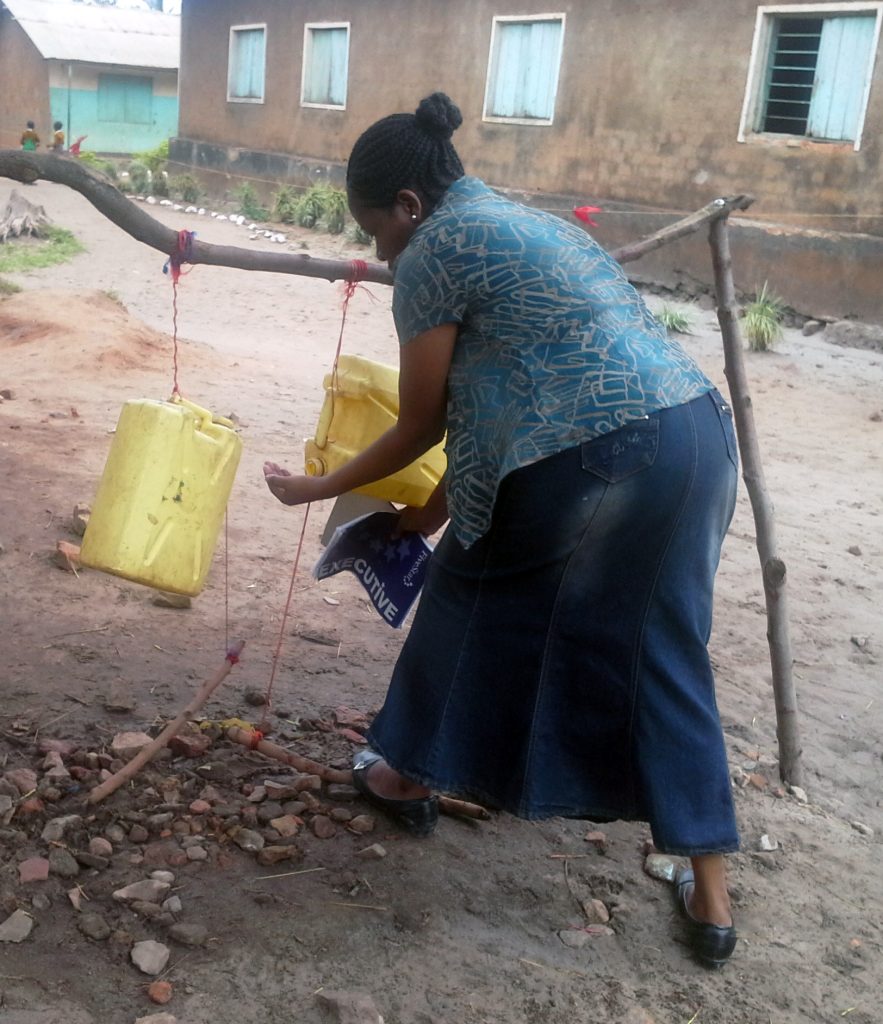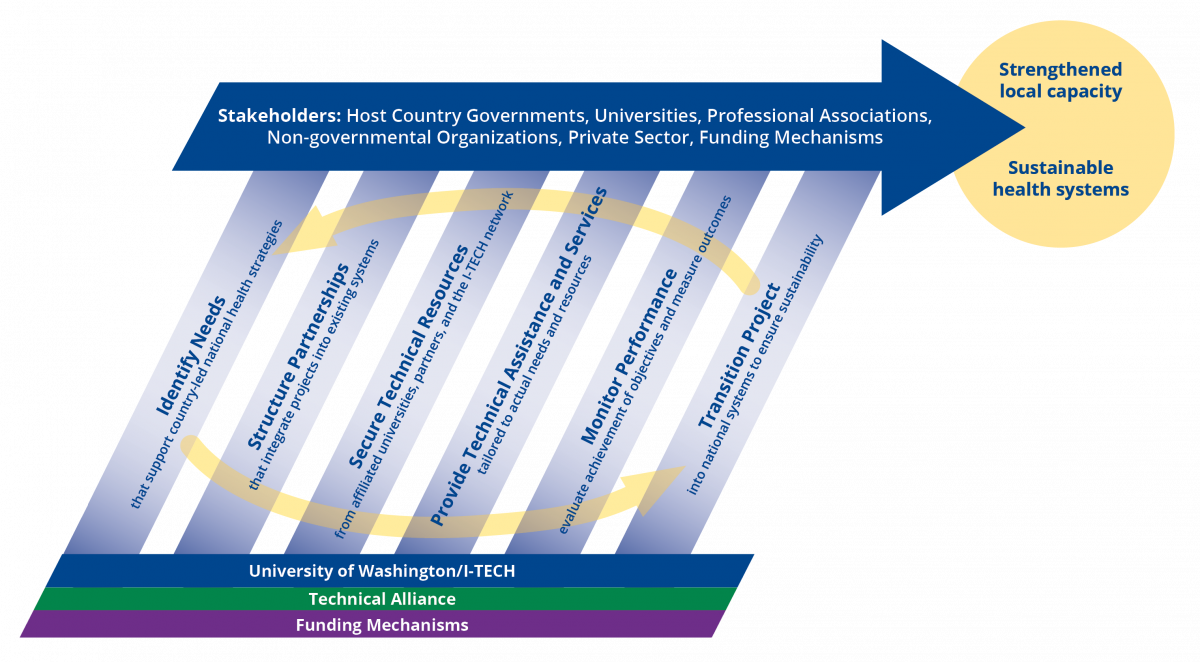
On May 26, the International Training and Education Center for Health (I-TECH) bids a fond farewell to its Executive Director, Pamela Collins, MD, MPH. Dr. Collins joined I-TECH in July 2020, seeing the center through the height of the COVID-19 pandemic; a new brand; continued localization of I-TECH offices to independent organizations; and a strategic shift toward an increased focus on mental health, digital health, and One Health programming.
She also spearheaded the formation of the I-TECH Humanitarian Fund, a mechanism to support our colleagues’ critical work in Ukraine after the Russian invasion.
“I am privileged to have worked with this talented and compassionate group of colleagues from around the world for the past 3 years,” said Dr. Collins. “As I entered I-TECH, I discovered a network ready manage the demands of health care delivery during the COVID-19 pandemic and one whose capabilities are aligned with contemporary public health priorities—from workforce development, emerging infectious diseases, digital health, to mental health. While I am sad to leave this community, I am extremely excited for I-TECH’s future.”
While Friday was Dr. Collins’ last day leading I-TECH, she will remain through June as a faculty member in the University of Washington (UW) Departments of Global Health and Psychiatry & Behavioral Sciences. Dr. Collins will then transition to her new role as the Bloomberg Centennial Chair of the Department of Mental Health at Johns Hopkins University’s Bloomberg School of Public Health—the only school of public health in the country with a department dedicated to mental health.
In her 5 years at the UW, Dr. Collins has also served as the Director of the UW Consortium for Global Mental Health and associate director of the UW Behavioral Research Center for HIV (UW BIRCH).
Dr. Collins will be succeeded in leadership at I-TECH by Ivonne Ximena “Chichi” Butler, MPH, and Pam Kohler, PhD, MPH, BSN. Ms. Butler and Dr. Kohler will serve as interim co-directors of the center, with Ms. Butler overseeing business and administration and Dr. Kohler leading science and assuming a technical advisor role for faculty and staff. The co-directors will work together to represent and pursue collaborations and partnerships within and outside the UW; engage stakeholders to invest in I-TECH; and liaise with country leadership, principal investigators, and staff on program implementation.
Dr. Kohler brings experience as co-director of the UW Center for Global Health Nursing and has been a faculty member with I-TECH for 11 years. In that time, she has led a field epidemiology training program in Tanzania and evaluated STD/HIV treatment and prevention programs and policies in Eastern and Southern Africa. Her research is focused on de-stigmatizing adolescent HIV prevention and treatment service delivery.
“I’m excited about this new leadership structure, which emphasizes and acknowledges both the role of nurses in global health and the profound administrative efforts it takes to lead an organization of this size,” said Dr. Kohler. “I look forward to getting to know our many teams and projects on a deeper level over the coming year.”
Ms. Butler’s 17 years at I-TECH have seen her in various leadership, program management, and technical roles, supporting multiple countries and a diverse project portfolio from health systems strengthening to prevention and clinical treatment programs. She was most recently Associate Center Director.
“I will miss Pamela’s insightful, thoughtful, and inclusive leadership,” said Ms. Butler. “She was the right person to lead us through a uniquely challenging time. Moving forward, I am motivated to broaden our reach beyond HIV and AIDS care and delivery and intentionally put individuals and communities at the center of the care they receive. There is much to learn, and the I-TECH network is well-positioned to do this with the expertise and care that our global teams and partners bring.”



